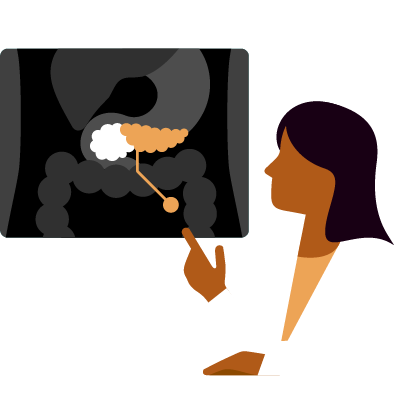High-Dose Vitamin C Targeting KRAS and BRAF in Pancreatic Cancer

Open up the average person’s medicine cabinet and chances are good that you may find a bottle of vitamin C supplements nestled right next to a bottle of multi-vitamins.
After all, vitamin C, or as it’s technically called, ascorbic acid, has enjoyed robust sales since it was found to play a role in boosting our immune systems, helping us to fight off the common cold, among other ailments.
But vitamin C has a much more storied history than simply fighting the sniffles. In the 17th century, a physician discovered that lemons and oranges prevented and treated scurvy, a plague among sailors who suffered from deficiencies of the vitamin. Although doctors back then didn’t know the reason why citrus fruits helped, that question was finally answered early in the 20th century when a researcher identified 6-carbon carbohydrate, hexuronic acid—basically vitamin C—as the substance responsible. About 50 years ago, Nobel Prize winning scientist Linus Pauling had a theory that high doses of vitamin C could potentially help treat cancer by increasing the survival rate. But a Mayo Clinic study disputed those findings, and vitamin C lost its luster as a potential therapy.
Part of the beauty of the scientific method is that researchers never really stop asking questions and tweaking study designs. Today vitamin C, as well as the study of cancer metabolism, are both having a bit of a cancer research moment. A pivotal study by a team of scientists at Weill Cornell Medicine (New York), Cold Spring Harbor Laboratory (Cold Spring Harbor, New York), Tufts Medical Center (Boston), Harvard Medical School (Boston) and Johns Hopkins Sidney Kimmel Cancer Center (Baltimore) showed that high doses of vitamin C can destroy colorectal cancer cells carrying mutations in the oncogenes KRAS and BRAF.
The use of high-dose intravenous vitamin C is now being studied for several solid tumors, including pancreatic cancer, explains gastrointestinal oncologist Manish Shah, M.D., Director of the Gastrointestinal Oncology Program at Weill Cornell Medicine (New York); he is leading a vitamin C trial for participants with resectable or metastatic solid tumor malignancies. The objective of the study is to investigate whether high-dose vitamin C infusion leads to a tumor response in patients with colorectal, pancreatic, and lung cancer. The study involves multiple cohorts, including a cohort of patients who are planning to have surgery (cohort A), as well as patients with KRAS or BRAF mutations who are eligible for radioembolization therapy, known as Y90 treatment, to the liver (cohort C). In another group, called cohort B, researchers will be looking for an objective tumor response in KRAS or BRAF mutant solid tumors.
How Does Vitamin C Target Cancer Cells?
It’s complicated, but put simply there are a finite number of ways the body produces energy to support growth. Cancer cells need energy to keep up their rapid growth and division. So do healthy cells. But the manner in which cancer cells take in that energy is different. Normal cells like oxygen. Cancer cells like sugar, also known as glucose. It seems that cancer cells are voracious consumers of sugar, and feed on more glucose and produce more lactate (lactic acid) even when there is a lot of oxygen available.
KRAS mutations (abundant in pancreatic cancer) and the less prevalent BRAF mutations are two oncogenes driving the growth of cancer. Cells with these mutations also make huge amounts of a protein called GLUT1, Shah explains. GLUT1 also acts as a transporter of the oxidized form of vitamin C into the cell. The oxidized form of vitamin C is called dehydroascorbic acid or DHA. It turns out that DHA consumes a chemical that gets rid of free radicals. With the absence of that chemical, free radicals run amok, resulting in the death of the cancer cell.
“So, basically, what we want to do in this trial is to kill cancer cells by disrupting the process, the chemical reactions, a malignant cell uses to grow and divide,” says Shah, who is also Chief of the Solid Tumor Service and Co-Director of the Center for Advanced Digestive Disease at NewYork-Presbyterian Hospital/Weill Cornell Medicine.
“Think of it this way,” he adds. “Tumors are hungry for glucose or sugar. And to get that sugar, the tumor overexpresses a protein that allows sugar to enter the cell. It turns out that vitamin C, when oxidized outside the cell, enters the cell through the very same receptor as the sugar, which then leads to the buildup of free radicals and the destruction of the cell. Vitamin C is really the substance that allows for the disruption of the process of a cancer cell getting energy, and we think this is unique in cells that have a KRAS or BRAF mutation.”
To Learn More
Eligibility requirements include, among others:
- Patients with histologically-proven early stage or locally advanced colorectal adenocarcinoma, lung cancer, or pancreatic cancer who are eligible for resection, and have not received chemotherapy or radiotherapy (cohort A)
- Patients with inoperable, metastatic, KRAS or BRAF mutant colorectal adenocarcinoma, lung cancer, and pancreatic cancer, who are eligible for Y90 radioembolization to the liver (cohort C).
“In general, patients are very receptive to the trial,” Dr. Shah says, since side effects are tolerable, although the development of kidney stones is possible. “The bottom line is we’re giving a vitamin, and people generally aren’t frightened by vitamins.”
But just how high a dose is the vitamin C? “It’s a lot more than an orange a day,” Shah says. “It’s actually estimated to be around 1,000 oranges per dose.”
Shah is cautiously optimistic about the trial. “Targeted therapy is becoming increasingly important in cancer treatment, and targeting KRAS has proven to be quite difficult,” Shah says. “KRAS used to be looked at as very difficult to develop a drug for, but research is now showing there are ways around that. What we are looking at is one potential avenue to target KRAS that might prove itself as a viable option to make pancreas cancer and other solid tumors with KRAS or BRAF mutations more treatable.






